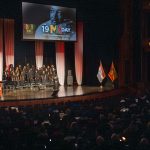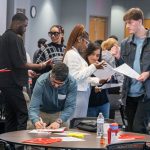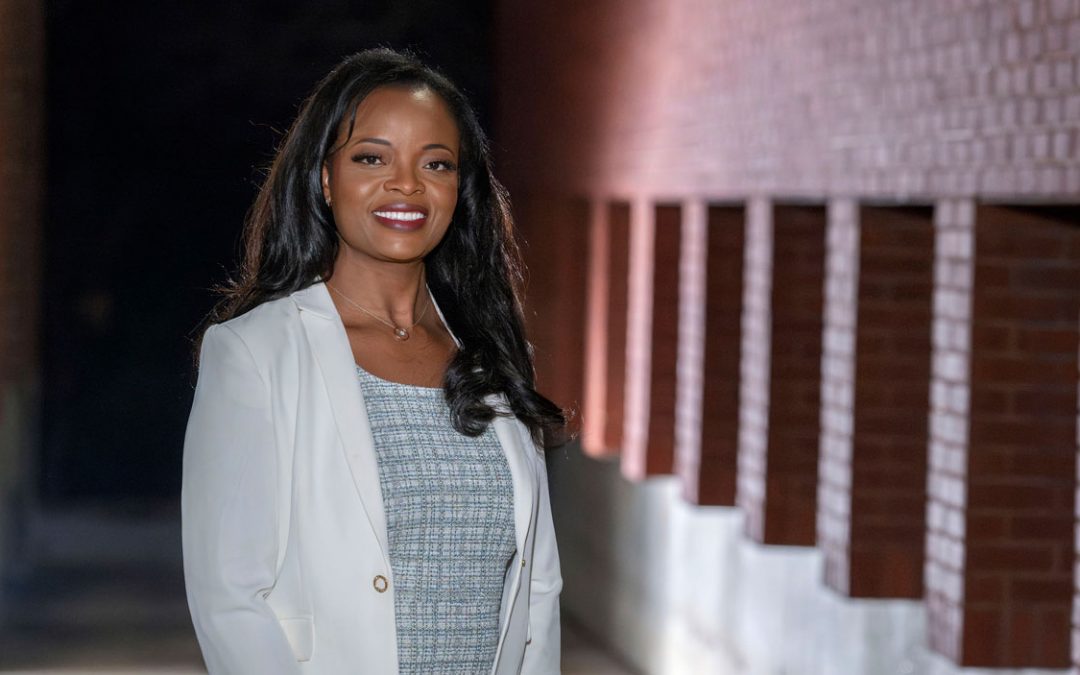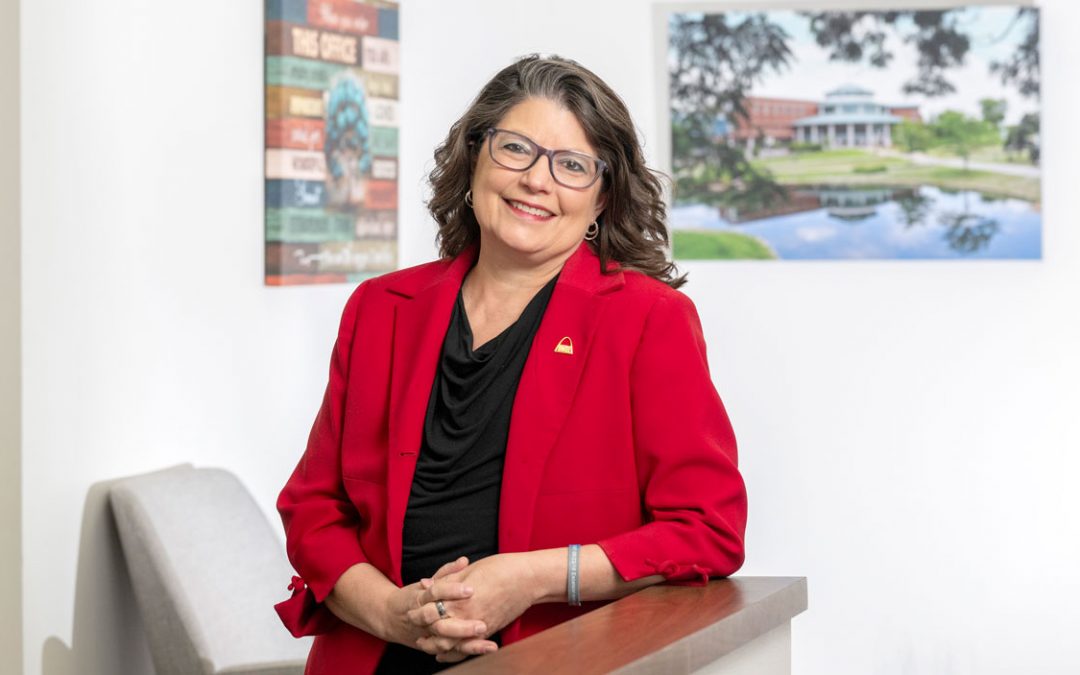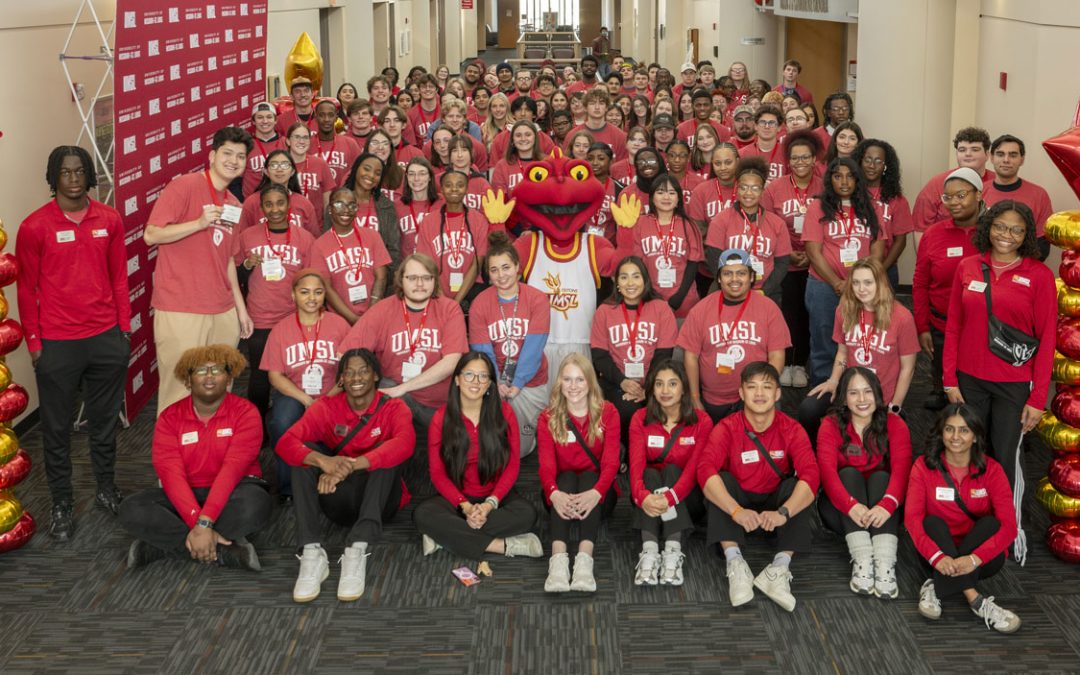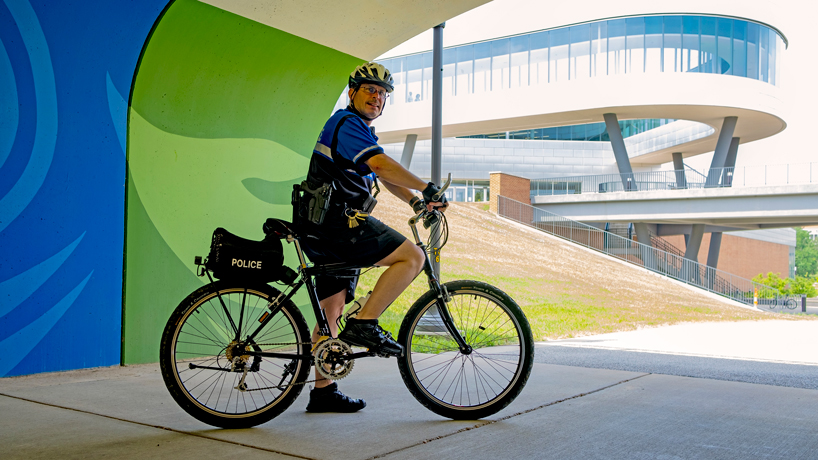
Tom McEwen has been a member of the UMSL Police Department since 1994. During that time, he helped establish and run the bike patrol unit, which rides 15 to 20 miles per shift. (Photos by August Jennewein)
Tom McEwen had his first run-in with the police at the age of 7.
His beloved bicycle was stolen, which was one of the most distressing things to happen in his young life. He didn’t have the means to replace his main mode of transportation. He had to hunt for it.
After a few days, he spotted his first clue: someone else riding up a neighborhood hill with the stolen property. A determined McEwen wasn’t going to let the theft go unanswered. He hopped on his brother’s bike, followed the suspect home and then called the police.
Later, an officer stopped by the McEwen residence, and the pair set off to return the bicycle to its rightful owner.
“I was just glad to get it back,” McEwen said. “I wanted to be a policeman before then, but this interaction helped me say, ‘I want to be like that and help people.’”
Now a few decades later, he is helping others – often while patrolling from the two wheels of a bike.
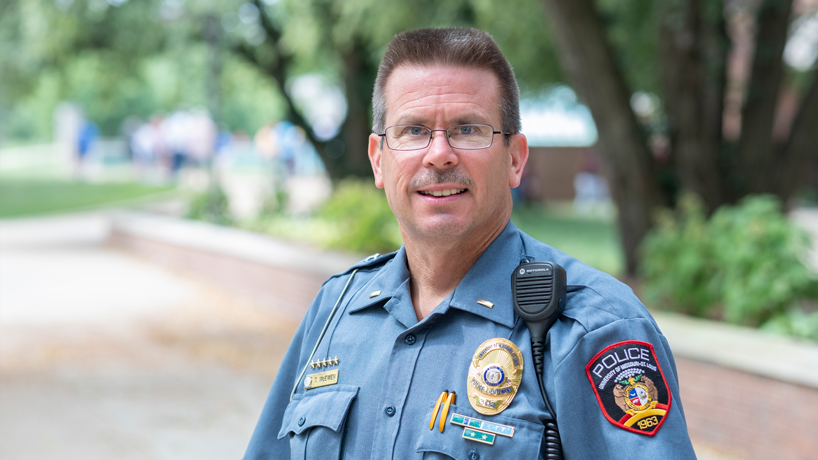 Along for the ride
Along for the ride
Since 1994, McEwen has worked for the University of Missouri–St. Louis Police Department. As the department’s longest-serving member, he’s seen its many evolutions during his time on campus – new facilities, MetroLink additions and a continuous stream of new students.
He’s also experienced growth of his own, climbing to the rank of lieutenant in 2018.
“UMSL is one of those places that feels like home,” McEwen said. “It’s a family. Not only is it a family within the police department, it’s a family within the campus. In the blink of an eye, I find myself here 25 years already. I absolutely love it.”
In a way, UMSL is a home for McEwen. He graduated from the College of Arts and Sciences just four years before returning as a patrolman, and he’s gone on to work more commencement ceremonies than he can remember.
His impact is felt throughout campus in everything from emergency responses to detailed police reporting and the career advice he offers to criminology and criminal justice students.
“UMSL police are here to help. That truly is our mission,” he said. “We are here to serve. It’s true community policing.”
Part of that sense of community comes from the department’s bike patrol program. McEwen helped establish the unit a year into his post at UMSL. He hadn’t considered such a program before he was asked to run it in 1995, but McEwen quickly realized the value bike officers could add to campus.
The patrolmen access areas not available to cars, have an easier time interacting with pedestrians and save money on gas.
“A college campus is the perfect place for bike patrol,” McEwen said. “It’s the best thing a college campus can do. Public relations is key.”
The bike unit is now up to five members – a record size – and rides between 15 to 20 miles a day. During a shift, the on-duty officer will navigate North and South Campus while stopping between buildings to help or converse with students, faculty, staff and campus visitors.
McEwen’s promotion to lieutenant has limited his ride time, but he still gets excited when he has the opportunity to cruise through campus.
“We’re not surrounded by metal and the windows of a car,” he said. “We’re on the sidewalk. We’re in the grass. We’re around the lakes. We’re everywhere. I could circle the quad seven or eight times in 20 minutes. That’s a lot of contacts. It’s a win-win across the board.”
Protect and serve
Now that he spends more time in a traditional office space, McEwen has focused his efforts on mentoring younger officers. His goal is to constantly remind his staff and community members that UMSL’s police department is service oriented and focused on creating a safe learning environment.
Hopefully those interactions can leave a positive impact – like his childhood meeting with an officer.
“If you’ve ever been stopped by the police, you remember that stop. It’s a pretty powerful encounter,” McEwen said. “The officers and supervisors can forget that over time. We need to put a positive spin on it, and we do here. People really do appreciate that. Those are our allies. Those are people that we serve. When we stop somebody, I know that’s going to be a memorable experience for them, and I want it to be a positive one.”



